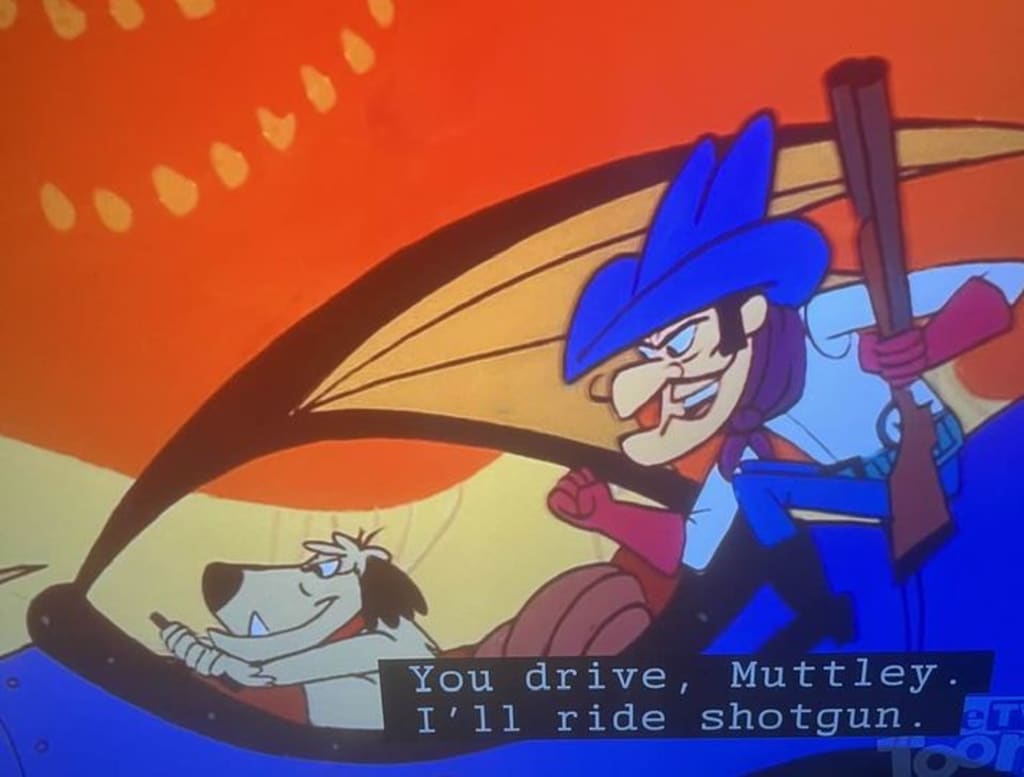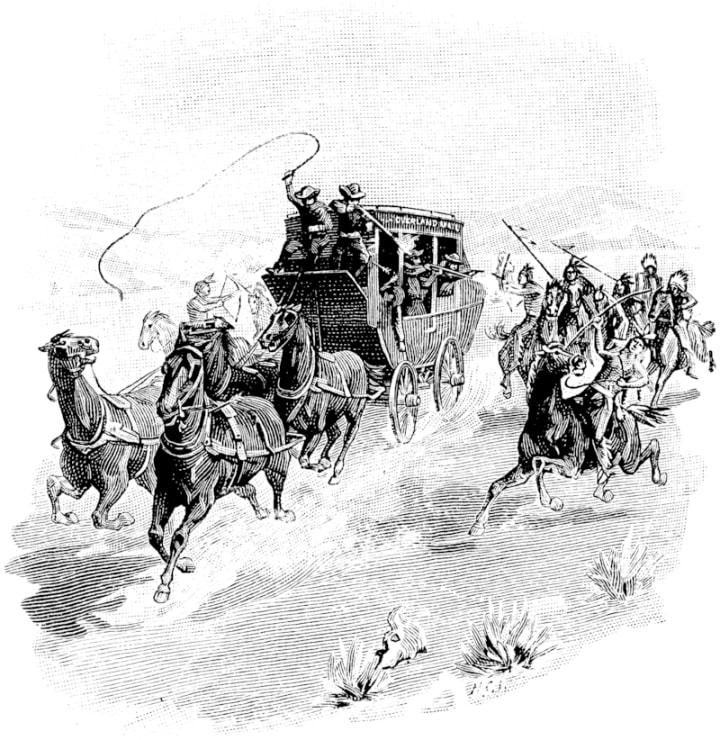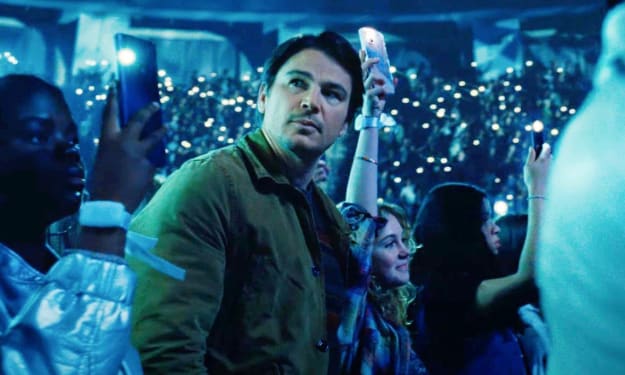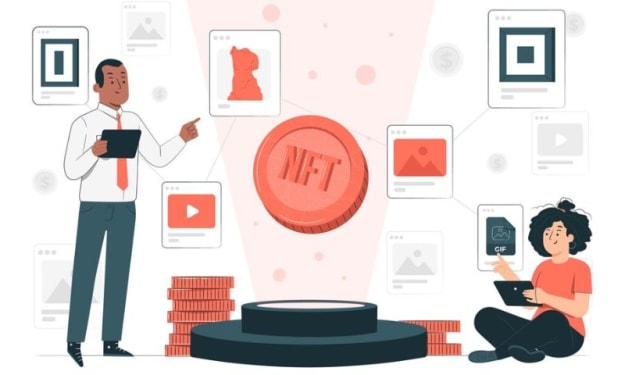Riding shotgun comes from a variety of sources going back to the days of the Wild West
The popular phrase came from a time when it was taken literally.

I call shotgun`!
I was watching an episode of the cartoon The Wacky Races this morning on MeTV Tunes when Dick Dastardly called shotgun while Mutley drove the vehicle.
Wacky Races is an American animated television series produced by Hanna-Barbera Productions for CBS on Saturday mornings. The series features 11 different cars racing against each other in various road rallies throughout North America, with all of the drivers hoping to win the title of the "World's Wackiest Racer". The show was inspired by the 1965 comedy film The Great Race.
I had not heard anyone say "I call shotgun" in a while but in recent years, people have been using this phrase frequently to indicate they want to ride in the front seat of a vehicle next to the driver. Sometimes an individual will simply shout "Shotgun," and the meaning is understood. In the Wacky Races episode, Dick Dastardly is riding in the back of his race car, holding a shotgun while his dog commands the vehicle.
Don Messick and his cartoon voices
As a side note Don Messick who voiced Mutley gave him a sneering type snicker whe he laughed at Dick Dastardly's failures. Messick provided Mutley's voice, along with Scooby Doo, Astro on the Jetsons, Azrael on The Smurfs and Sebastian the cat on Josie and Pussycats. He gav3e these characters their distinctive tones because his voice was rasply from smoking. Once he quit smoking he said he could not perform the voices on command.
Riding Shotgun
The phrase “riding shotgun” became popular in the mid-20th century in race car culture but the origin came from a combination of the American stagecoach era, the Wild West, and Hollywood. During the days when stagecoaches were utilized armed guards sometimes rode alongside drivers to protect passengers and valuables from robbers or hostile natives.
We have all seen the movies where a big payroll is being trasnported via stagecoach and there is always someone planning a robbery. It's difficult to believe that I have enjoyed each of the 17 episodes of The Wacky Races animated shorts and did not recall Dick Dastardly using the phrase in five decades.

Wells Fargo and the stagecoach
The armed guards on stagecoaches would use shotguns because they are effective at close range and scatter pellets. The term “riding shotgun” was first documented in 1919, and gained prominence through television and films. Later Americans began saying "I call shotgun!" After the 9/11 attacks in 2001, federal air marshals were said to be riding shotgun as a joke.
When Wells, Fargo & Co. began regular stagecoach service from Tipton, Missouri to San Francisco, California in 1858, they issued shotguns to its drivers and guards for defense along the perilous 2,800 mile route.[9] The guard was called a shotgun messenger and they were issued a Coach gun, typically a 10-gauge or 12-gauge, short, double-barreled shotgun
Riding shotgun is a game for teens
Riding shotgun is also a game played by teenagers where being the first person to call out "shotgun" gets the honors. Everyone must be in view of the vehicle they are going to ride in for this to be legit. Sometimes calling shotgun too early disqualifies an individual. This game is considered a fair way to derermine who rides in the front seat but if someone in a group calls out "Shotgun" first more than others it could be seen as unfair.
Watching Mutley drive as his master rode shotgun was hilarious. Learning about the history of the phrase was enlightening and I hope you the reader enjoyed this article and were increased by this information,
About the Creator
Cheryl E Preston
Cheryl is a widow who enjoys writing about current events, soap spoilers and baby boomer nostalgia. Tips are greatly appreciated.
Enjoyed the story? Support the Creator.
Subscribe for free to receive all their stories in your feed. You could also pledge your support or give them a one-off tip, letting them know you appreciate their work.






Comments (1)
I've never thought of the origin of this phrase before. What a fun article!